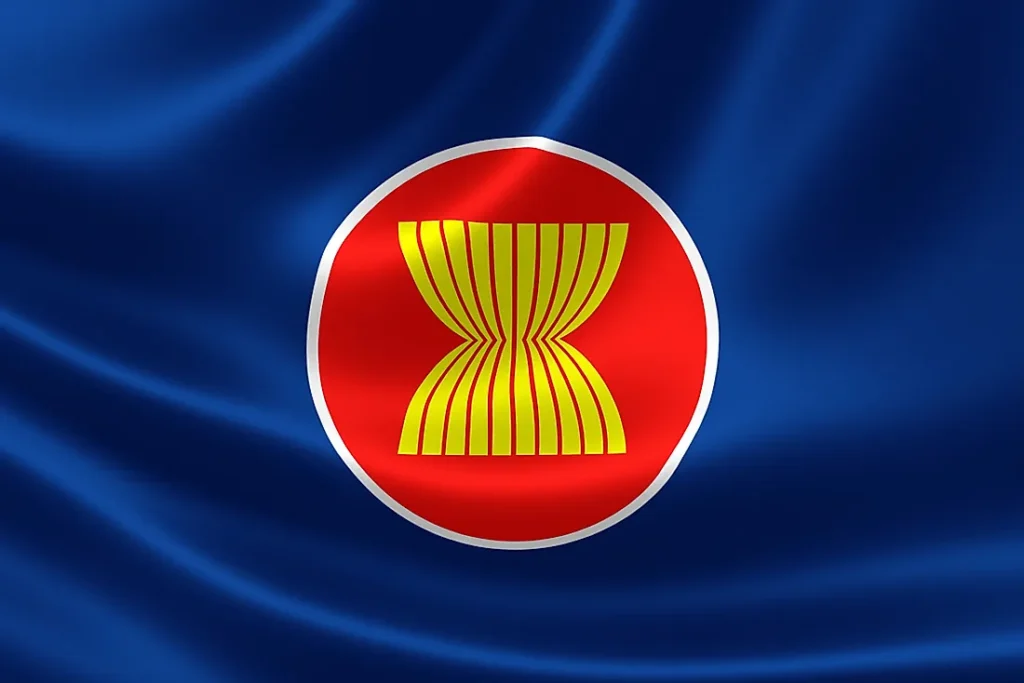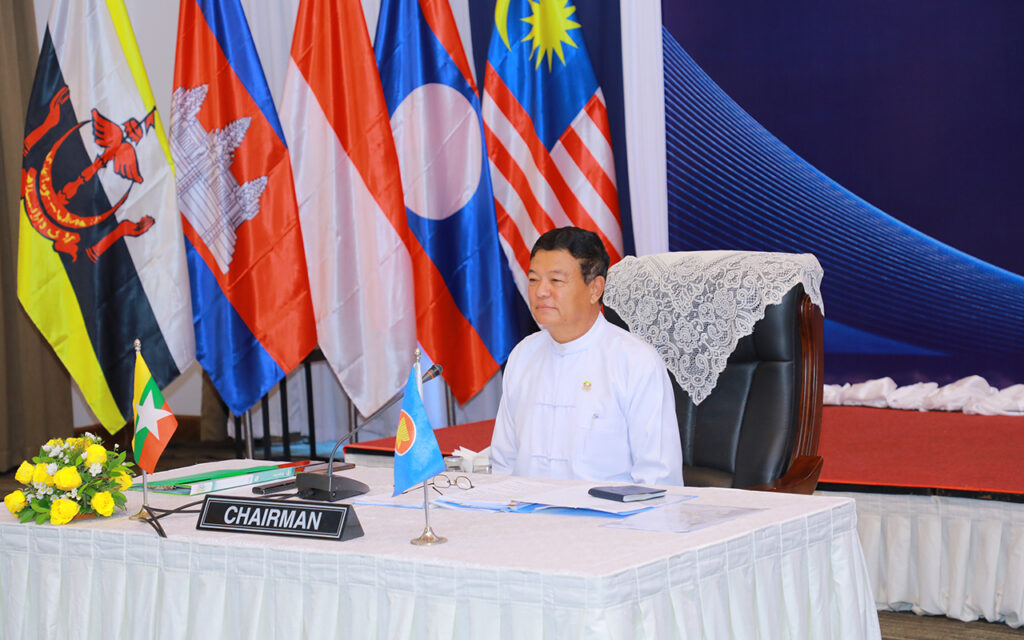
The ASEAN Senior Officials Meeting on Youth (SOMY) functions within the framework of the ASEAN Work Plan on Youth 2021–2025, which focuses on cultivating “future-ready ASEAN youth” by improving 21st-century skills, digital literacy, and a sense of regional identity (ASEAN Secretariat, 2022). This plan draws on insights from earlier work plans and promotes cross-sectoral collaboration to tackle complex issues affecting youth. It is closely aligned with the ASCC Blueprint 2025, ensuring that youth policies contribute to broader regional objectives like sustainable development and social inclusion. Among SOMY’s most significant initiatives is the ASEAN Leaders’ Interface with Representatives of ASEAN Youth, which creates a platform for young people to express their aspirations directly to policymakers, thereby integrating their perspectives into decision-making processes (ASEAN Secretariat, 2022).
ASEAN countries have adopted a variety of innovative methods to localize the Sustainable Development Goals (SDGs), reflecting their unique socio-economic contexts and governance structures. For instance, Indonesia has established a national coordinating body that emphasizes multi-stakeholder collaboration among government agencies, civil society organizations, academics, and private sector representatives to ensure inclusive implementation of the SDGs. A significant aspect of Indonesia’s approach is its focus on integrating entrepreneurship into education systems to address economic inequality while promoting environmental sustainability through community-based initiatives (UNDP, 2018; IMF, 2018).

Vietnam has similarly taken a systematic approach by benchmarking its national development plans against global sustainability targets. This involves identifying gaps in existing policies and aligning sectoral priorities with the SDGs. Vietnam prioritizes integrating SDG-related themes into higher education curricula, particularly in engineering and technology programs aimed at addressing environmental degradation and climate resilience (IMF, 2018). In Singapore, the focus is on innovation-driven education and research. The government supports specialized courses in universities that tackle sustainability challenges such as climate action and gender equality. Research grants are provided to foster projects aligned with SDG priorities, enabling Singapore’s advanced education system to contribute meaningfully to global sustainability efforts while addressing local challenges (UNDP, 2018).
Malaysia emphasizes grassroots-level engagement through community-based sustainability programs that integrate practical applications of sustainability principles into education systems. Workshops and outreach initiatives focus on renewable energy projects and waste management systems designed to raise awareness within local communities (UNDP, 2018). Cambodia addresses rural-urban disparities in access to quality education by investing in digital infrastructure for remote learning platforms. This initiative aligns with SDG 4 (Quality Education) while tackling broader issues of inequality (UNESCO GEM Report Team & SEAMEO, 2023). Thailand leverages public-private partnerships (PPPs) to enhance transparency in infrastructure projects related to SDG implementation. These partnerships include strict public procurement requirements aimed at preventing corruption while ensuring alignment with sustainability goals (UNDP, 2018).
The Philippines employs Community-Based Monitoring Systems (CBMS) as an effective tool for tracking progress toward the SDGs at the local level. By collecting disaggregated data on key indicators such as poverty, health, and education, CBMS enables policymakers to design targeted interventions that efficiently address the needs of vulnerable populations (UNDP, 2018). Meanwhile, Brunei Darussalam has developed robust data ecosystems focused on disaster risk reduction efforts under SDG 13 (Climate Action), providing real-time data that supports evidence-based policymaking for disaster preparedness (ASEAN-China-UNDP Symposium, 2018). Lastly, Lao PDR emphasizes capacity building for local governments through training programs designed to equip officials with skills needed to implement integrated development plans aligned with global goals (UNDP, 2018).
SOMY complements formal education reforms with community-based initiatives that prioritize entrepreneurship and digital skills development. For instance, Malaysia incorporates sustainability principles into vocational training programs aimed at rural communities (ASEAN Secretariat, 2022). However, challenges remain in scaling these efforts due to funding limitations and disparities among member states. Lower-middle-income nations often face difficulties in allocating adequate resources for infrastructure critical to achieving SDG-related objectives (IMF, 2018). Bridging rural-urban divides is essential to ensure equitable access to digital literacy programs. Additionally, sustaining youth engagement beyond formal platforms presents another hurdle (ASEAN Secretariat, 2022). While forums like the ASEAN Leaders’ Interface facilitate dialogue, ensuring long-term involvement necessitates institutional reforms that embed youth representation within governance frameworks. Successfully localizing the SDGs and eradicating poverty requires collaborative efforts, as highlighted during the ASEAN-China-UNDP Symposium (ASEAN-China-UNDP Symposium, 2018). Overcoming these challenges also involves strategic policy pathways and implementation, which are essential for SDG localization within ASEAN (UNDP, 2018).
References
ASEAN Secretariat. ASEAN Work Plan on Youth 2021–2025. Jakarta: ASEAN Secretariat, 2022. https://asean.org/wp-content/uploads/2022/11/ASEAN-Work-Plan-on-Youth-2021-2025_.pdf
IMF. ASEAN Progress Towards Sustainable Development Goals. Washington D.C.: IMF Publications, 2018. https://www.imf.org/-/media/Files/Publications/PP/2018/101118-asean-progress-towads-sustainable-development-goals.ashx
UNDP. SDG Localization in ASEAN: Experiences in Shaping Policy Pathways. Bangkok: UNDP Publications, 2018. https://www.agora-parl.org/sites/default/files/agora-documents/SDG%20Localization%20in%20ASEAN%20-%20Experiences%20in%20Shaping%20Policy%20and%20Implementation%20Pathways.pdf
UNESCO GEM Report Team & SEAMEO. Global Education Monitoring Report Southeast Asia: Technology in Education. Paris: UNESCO Publications, 2023. https://sea-vet.net/images/seb/e-library/doc_file/1466/global-education-monitoring-report-2023-southeast-asia-technology-in-education-a-tool-on-whose-terms.pdf
ASEAN-China-UNDP Symposium. Localising the SDGs and Realising Poverty Eradication. Siem Reap: UNDP Publications, August 2018. https://www.undp.org/asia-pacific/events/asean-china-undp-symposium-localising-sdgs-and-realising-poverty-eradication